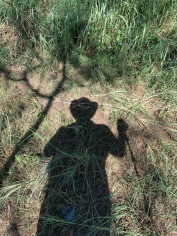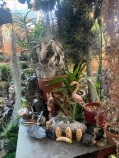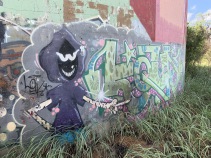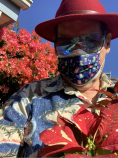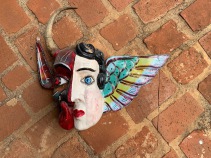This 'page' will be where the focus of activity will be for an ongoing account of:
What is Orthobionomy?
Some simple ways of saying what it is. Loving the World and letting the World love You; Meeting the World on its own terms; Meeting her at least half-way; Riding the horse in the direction it is going.
One can say that orthobionomy is a philosophy. More accurate is is applied philosophy or philosophy that is expressed through action as well as reflection. It is a praxis.
I can say that orthobionomy is also a theology. (I will delve further into that a later time). It would cause something of a stir if I were to say that Ortho-Bionomy has any relation to theology––apart from the Christian social matrix from which it emerged. Also apart from the historical fact that Founder Pauls's original impulse was to organize it as a religion.
Orthobionomy is a mediating model that serves to manage a dynamic balance among one’s various selves. There are many such practices.
It is something like a compass, it favors the loosing end of the constraint/freedom conversation. It bets that the loosing end is the healthier.
A basic assumption of orthobionomy is that woven in the fabric of the universe is a bend toward life, a bend dexter. A strong version of this is that being itself requires life. In which case the universe fractally, to the most micro, inseparably suffused throughout with life. This is a difficult conclusion to avoid. It does go contrary Science’s more favored views, which tend to leave Life entirely out of the picture. So much depends on what assumptions are chosen to begin with. It’s like the cooking game. Here’s a squid, vanilla ice cream, and a bag of Cheetos. Create a three-house dinner using all these ingredients. These are your givens.
There was a time when Arthur Pauls favorite catch-phrase was "Ortho-Bionomy is not so much a scientific approach as it is an intuitive approach." I am likely paraphrasing. I know he did not say this as a rejection of science but to simply put more emphasis on the intuitive side. He might better have said on the artistic creative side, or say it draws more from the Humanities. Never in my hearing or my reading of him did I find any attempt to explain what he meant by "intuitive." The felling of him when he used the word was that it was broadly encompassing. It is guidance from the gut, a summarizing of information leaking in at a multitude of fronts. It is (with a few notable exceptions) reliable.
The word ‘intuitive’ has been much abused. It carries a sense of something coming for free, no cost attached, a short cut. It also gets dressed up in some gaudy raiment of mysticism. Intuition as a mode of inquiry is a rigorous discipline
